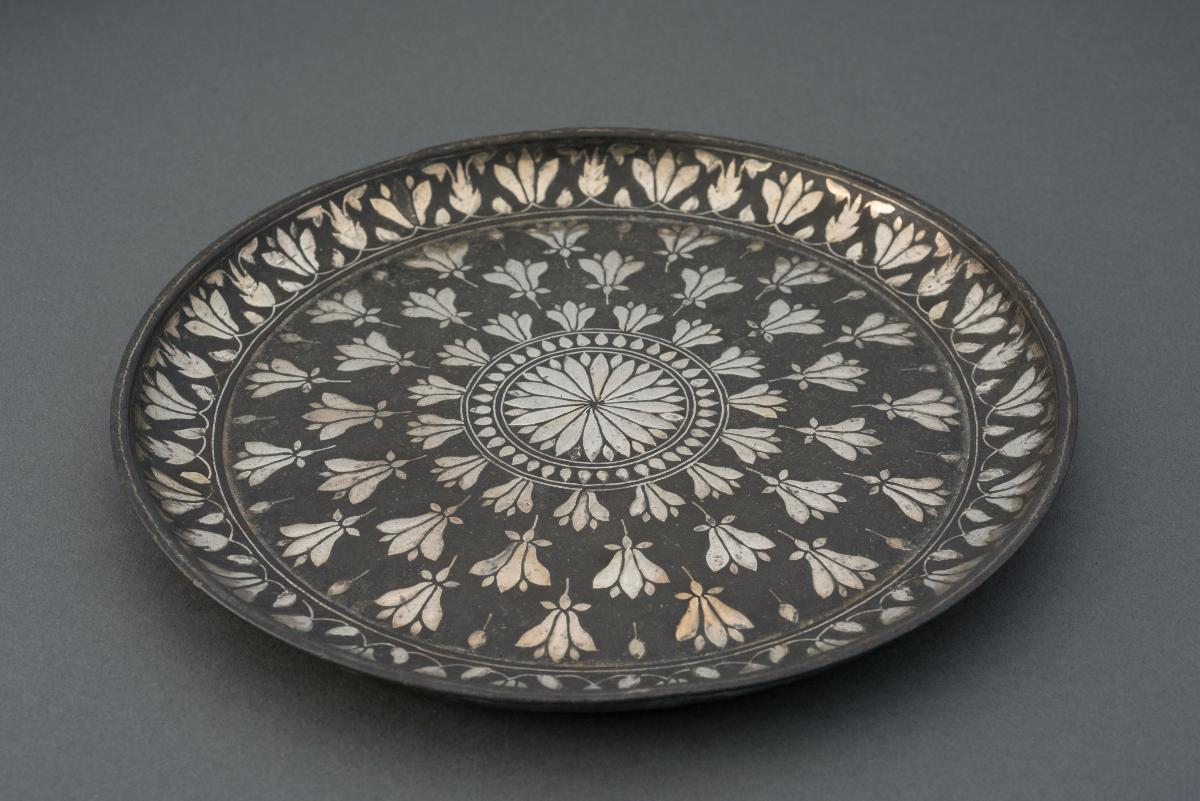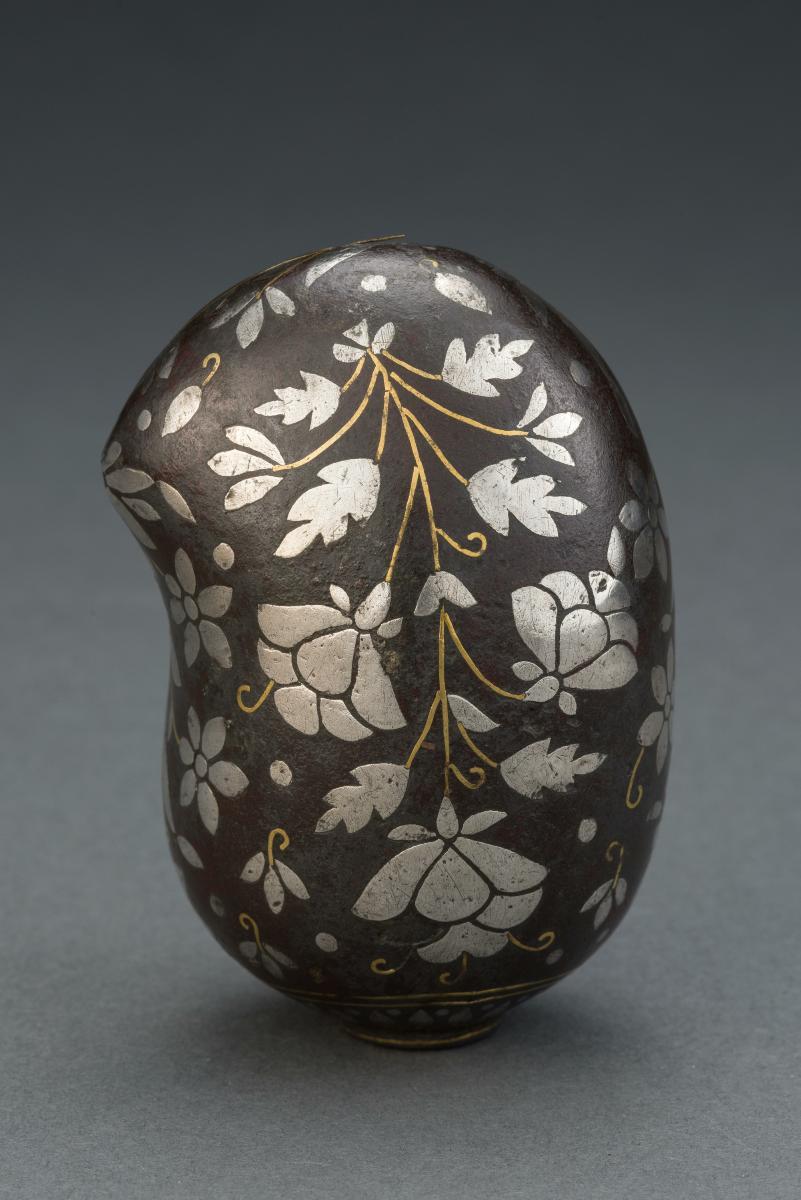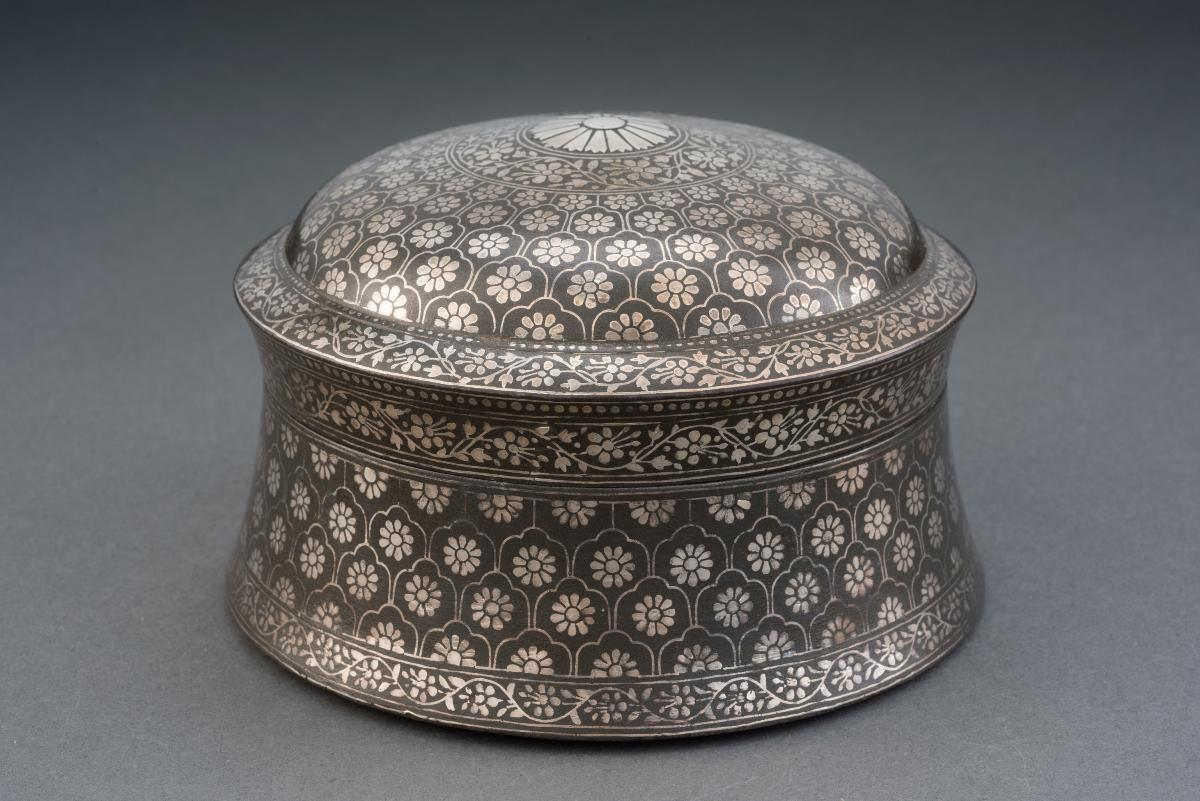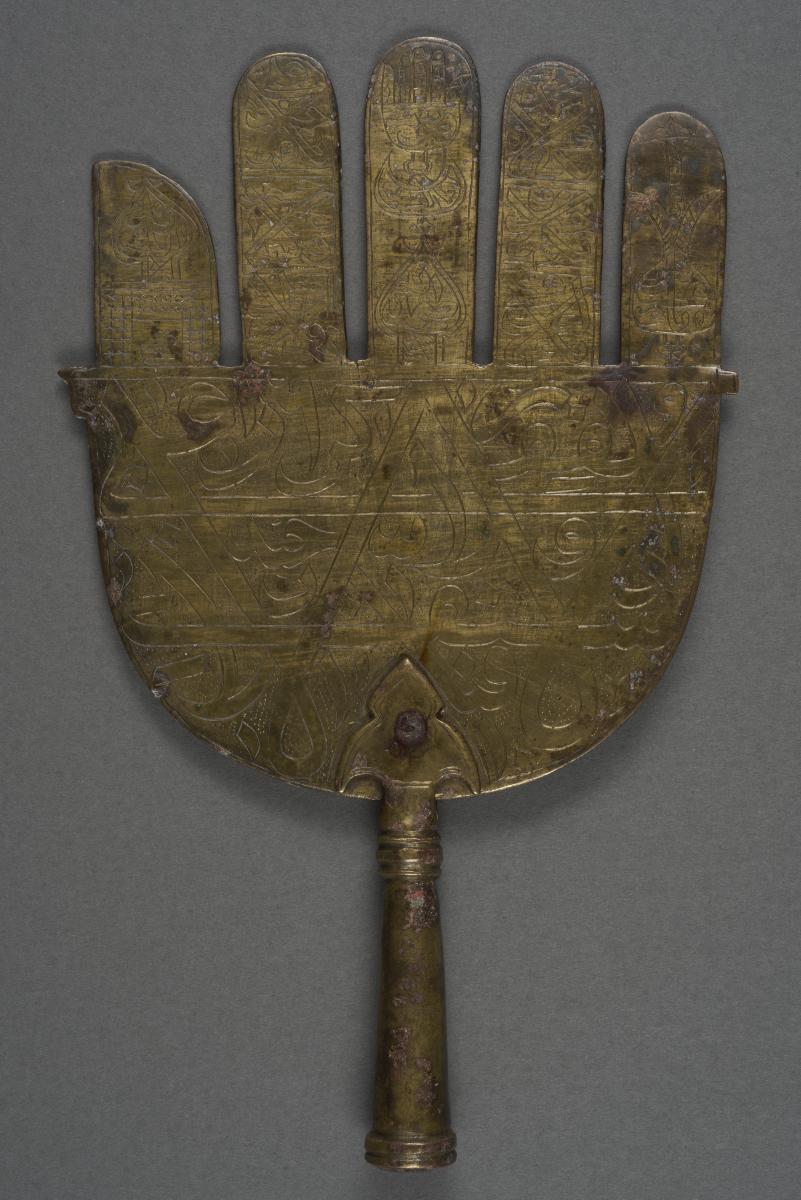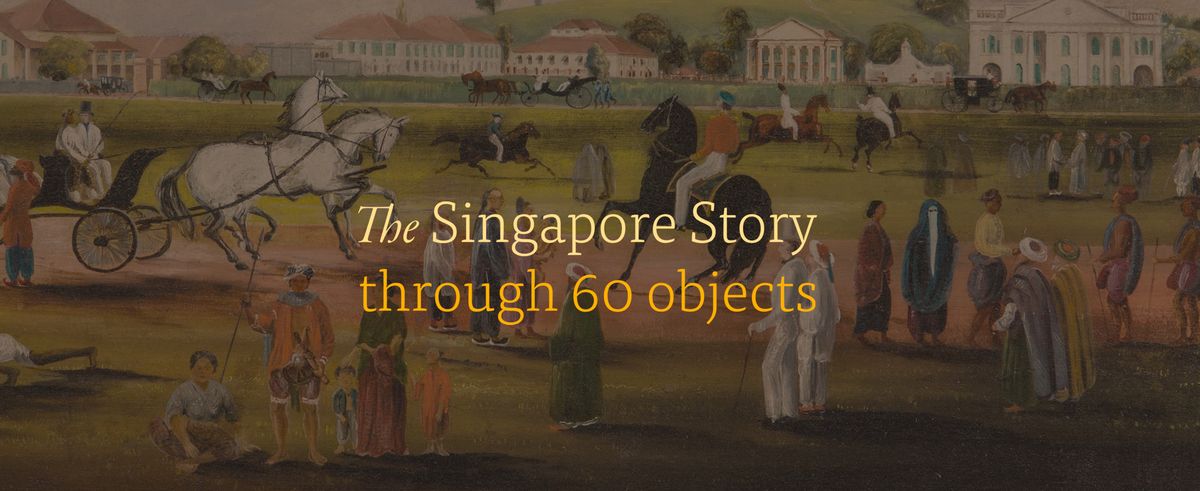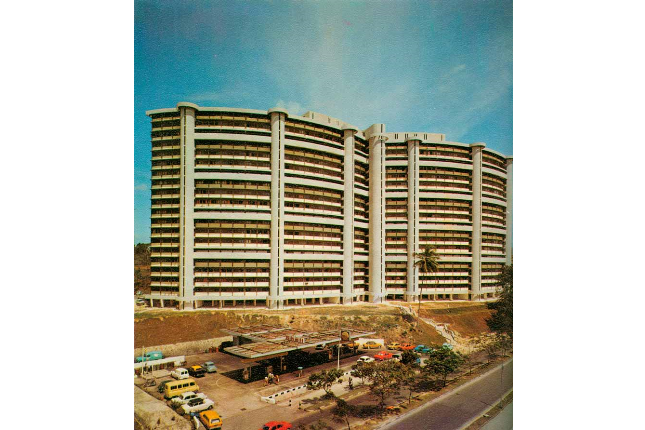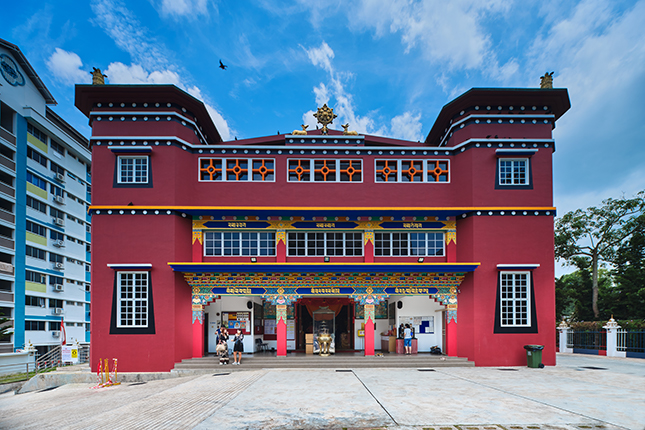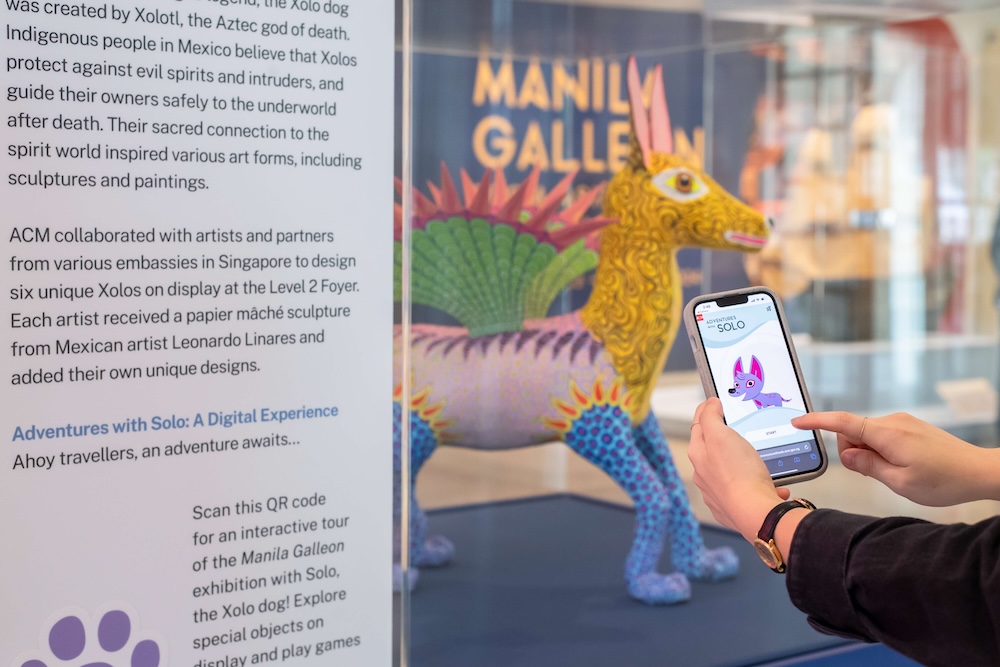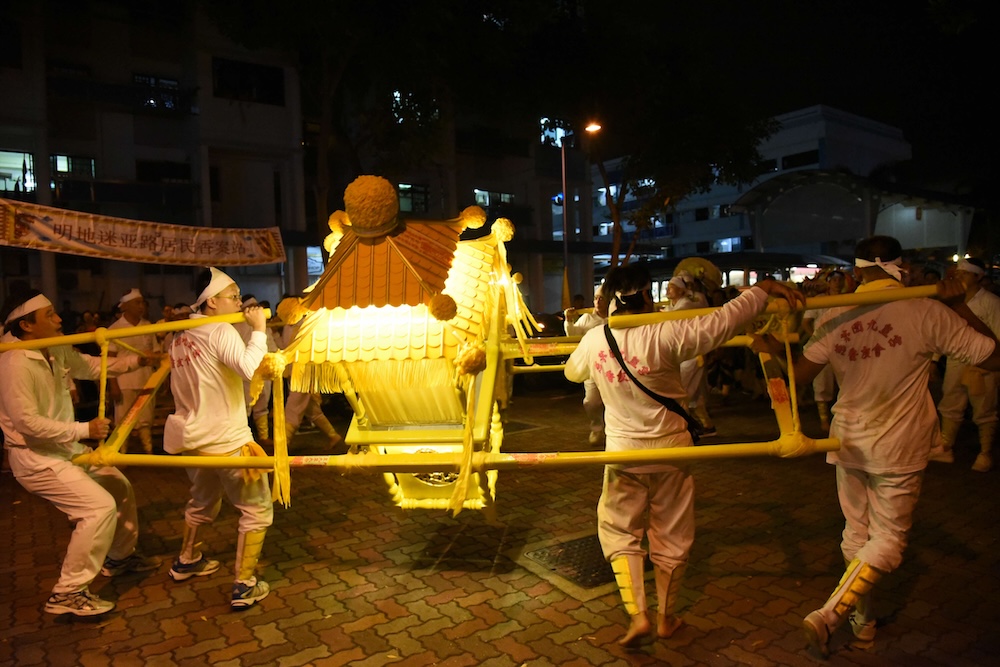Bidriware refers to a range of bronze and brass wares inlaid or overlaid with silver and gold detail in the Islamic world. Called bidri due to the origin of the tradition in city of Bidar in the Deccan, these objects are usually cast from an alloy of zinc, copper tin and lead. Bidriware are diverse in form, decorative yet utilitarian; they include huqqa bases, pandaan or containers for betel leaf and nut, and lime, salvers, dishes, carpet weights, etc. The bidri craftsmen supplied to a diverse clientele including the Deccani sultans, the Mughals, the Rajputs, courtiers and rich merchants as well as Europeans. The bidri craftsmen borrowed and adapted from motifs from textile and architectural designs. Stylistically inspired by Mughal and Deccani schools, floral and geometric patterns predominate, as seen in the proposed group.





